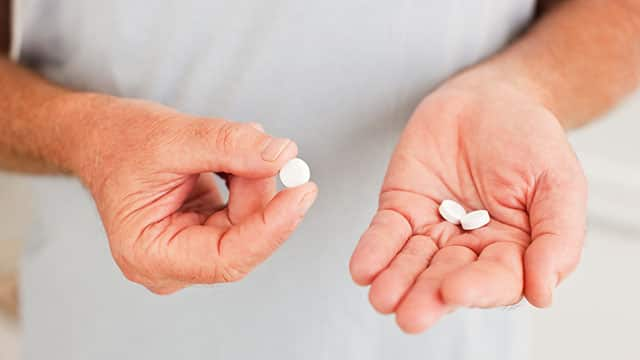Rinsing Solutions After a Tongue Piercing
To help prevent the risk of infection in the days and weeks following a tongue piercing, use a mouth rinse to clean the piercing site. The ADA suggests rinsing with an alcohol-free mouth rinse regularly during and after the healing period.
Use a Soft-Bristled Toothbrush
Using a new toothbrush after a piercing avoids introducing new bacteria into the mouth. A soft-bristled toothbrush designed to reach into small places without being rough on the area is the best kind of toothbrush to use after getting a tongue piercing. Although a soft-bristled brush is less harsh, be sure to brush around the piercing gently and carefully during your regular oral care routine.
Eating
To keep food from hitting the piercing during the healing period, use your fingers to place the food directly on your molars for chewing. Just be sure to wash your hands thoroughly with antibacterial soap before putting them in your mouth.
What Does Normal Healing Look Like?
Usually, a tongue piercing heals within four to six weeks. Pain, as well as a range of other healing symptoms, are perfectly normal after getting a tongue piercing. You can expect the pain to last up to one month, decreasing with time. Tongue swelling usually lasts three to five days but can reduce that by drinking cold liquids. Remember that your metal piercing is a conductor and will amplify the chilling effects of cold substances or the warming effects of high-temperature foods and beverages. So be careful not to overdo it.
Signs of Complications and Infection
Proper care and attention should lower the risk of infection from tongue piercings. Nonetheless, the ADA lists some potentially severe complications. In some cases, the tongue may swell to the point that it impedes breathing, in which case you should seek care right away. Look out for signs of infection after a tongue piercing, including fever, chills, shaking, or a red-streaked appearance around the piercing site. Contact a dentist or physician immediately if you suffer any symptoms.
Avoiding Dental Problems
A few temporary lifestyle changes can help prevent dental problems as a result of a tongue piercing. You should avoid chewing on non-food items such as gum, pencils, fingernails, tobacco and sunglasses. Substances like aspirin, caffeine and alcohol can increase swelling, bleeding and pain; you should avoid them during the healing process. For adventurous eaters, hot, spicy, salty and acidic foods are also on the list of no-go items while your tongue recovers.
Keep in mind playing with the jewelry and clicking or pushing it against the teeth can delay healing and cause dental problems like cracked or chipped teeth or receding gums. Some dentists say that a tongue piercing may fracture some types of restorations, such as crowns made of porcelain or porcelain and metal. In these cases, some dentists recommend acrylic balls or barbells, rather than metal ones.
Whether you’re looking to take care of an existing tongue piercing or you’re preparing yourself to get one in the future, we commend you for your commitment to taking care of your new bling. Although most dentists aren’t crazy about the idea of a foreign object being in your mouth, with proper care and careful attention, you can wear your tongue piercing proudly and still take care of your oral health.
Oral Care Center articles are reviewed by an oral health medical professional. This information is for educational purposes only. This content is not intended to be a substitute for professional medical advice, diagnosis or treatment. Always seek the advice of your dentist, physician or other qualified healthcare provider.
ORAL HEALTH QUIZ
What's behind your smile?
Take our Oral Health assessment to get the most from your oral care routine
ORAL HEALTH QUIZ
What's behind your smile?
Take our Oral Health assessment to get the most from your oral care routine















